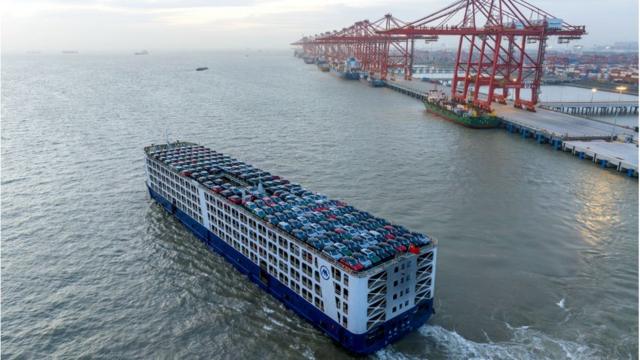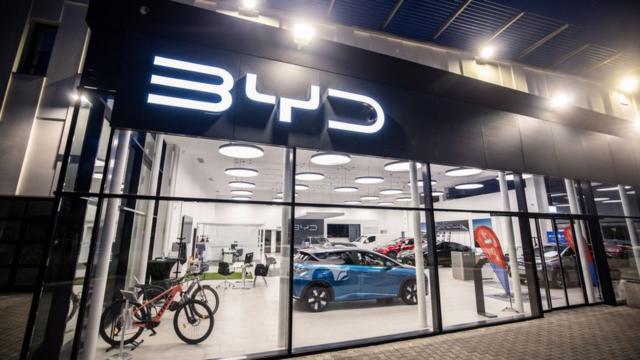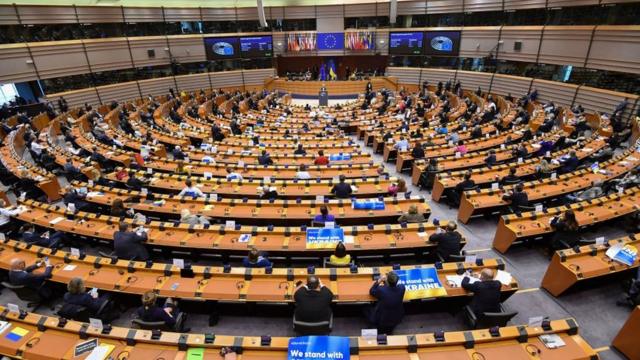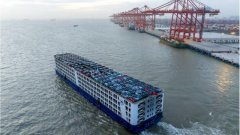
The European Union will impose punitive tariffs on Chinese electric vehicles.In early October last year, the European Commission officially launched an investigation of anti -subsidy of China Electric Motors.
According to EU laws, the survey lasts up to 13 months, and temporary tariffs can be imposed after nine months of the investigation. This period is July 4.
Earlier, European media kept news that the decision to be announced will be announced soon, but it has not been fulfilled. At present, the recent news is that the German Mirror Weekly quoted the EU insiders saidThe European Parliament was announced (June 9).
The electric vehicle industry has high hopes for China, hoping to use its industrial upgrading and overtaking in corners, and the EU is the largest market for electric vehicles in China. Therefore, this tariff dispute has attracted much attention.
How high is the tax rate?
"15%-30%." Rhodium Group, a consulting company focusing on energy and climate, estimated in its research report.
At present, the EU's import tariffs on electric vehicles are 10%. Rong Ding believes that under this tax rate, BYD and other Chinese car companies can make great profits in the European market, because in the high -intensity Chinese market competitionThe price and profits are extremely low, and have a strong cost advantage.
Rong Ding pointed out that even calculated at the current maximum tax rate of 30%, BYD still has the power to seize the share in the EU market.
For example, BYD's SEAL U model (that is, Song Plus in the Chinese market) is priced at 20,500 euros in China, and the price in the EU is 42,000 euros. It is expected that its profit in the domestic market is 1300 euros, andEach car in Europe has a profit of 14,300 euros.Even if a 30% tariff is imposed, the model can obtain considerable profits in the EU market.
The agency believes that only when tariffs reach 45%or even 55%can the European market lose its commercial attraction to Chinese car companies.
ING Bank's chief economist Song Linxiang said that if the final tariffs are very radical -the market usually regards 50%as a threshold -then retaliation and friction upgrade may occur.

But the recent movements of other countries have to worry about China -on May 14, the US tariffs from electric vehicles imported from China increased from 25%to 100%.
"When the EU and the United States are restricting Chinese electric vehicles, their goals and techniques are very different." Wang You (Yin), a scholar of international relations in Jinan University, said.
But he also analyzed that the EU's goal was to maintain the fair environment of its own electric vehicle market, and the United States seemed to maintain its leading position in the global electric vehicle field.Based on the above different goals, the methods adopted by the European Union and the United States are also different: the EU's investigation of Chinese electric vehicles is more transparent, using trade instruments, and 13 months, reflecting the prudence and procedures of the investigation;In the comparison, the United States politically defines the problem of electric vehicle imports as security issues. Using ambiguous survey methods to make decisions in the short term.
Who is affected?
Three Chinese car companies seem to have attracted more attention from the European Union.
In October last year, the European Union launched an anti -subsidy survey, and required BYD, SAIC Group, and Geely Automobile to provide information to assist in investigation.
By May of this year, Reuters quoted sources that the European Commission officially warned that the above three companies did not provide enough information.
The report said that if the European Commission determined that the investigated enterprises cannot provide sufficient information, they will use other existing evidence to calculate tariffs, and it usually causes higher tariffs.In fact, the EU's anti -subsidy survey of China often ended in this way.
Although BYD, SAIC Group (its European brand MG), and Geely are the leaders of China exports to Europe, they are not the largest exporters.Its DACIA.The former is Tesla's wholly -owned enterprise. After production in Shanghai, it was exported to Europe; the latter joint venture between Renault and China Dongfeng. After production in Hubei, it was exported to Europe.
Nearly 50%of China's new energy vehicles exported to the European Union are Tesla, Volkswagen, BMW and other Western car companies (Tesla occupy about 40%).The annual sales of Chinese brands in Europe are less than 200,000, and the market share is less than 8%.
But some institutions estimate that the growth of Chinese brands will speed up significantly.The European Transportation and Environment Federation predicts that Chinese car companies will have a market share of 11%in 2024 and 20%by 2027.
For Western car companies produced in China, such as BMW, Tesla, etc., the EU tariffs are also applicable.Research reports by Rhodium Group stated that 15%-30%of tariffs will not allow BYD to withdraw from the European market, but it may cause the business of foreign companies such as BMW or Tesla to transport cars from Chinese companies.
In order to cope with this policy risk, many car companies' avoidance methods are to transfer production to the European Union.For example, BYD and Weilai built factories in Hungary; SAIC and Great Wall also announced that European factories have entered the "site selection stage"; Tesla is also built in Germany.
This is exactly what EU countries are happy.For example, French President Macron publicly called for more foreign capital to come to France. One of his repeated activities of the platform "Choosing France" was "de -carbonization", including investment that attracted new energy vehicles.
Will China fight back?
German newspapers stated that it is expected to open on July 4 for temporary tariffs.According to EU regulations, the negotiation stage of member states and manufacturers will also begin a series of negotiations between China and the European Europe to determine the rules until early November will officially take effect.
The Chairman of the European Union Feng Delin believes that this final period should be used to negotiate with China.

Research from the Institute of Economics, Germany shows that if the European Union imparts 20%of tariffs, it will reduce China's export of electric vehicles of the European Union by 25%, worth about $ 4 billion, but EU consumers will also beThe "significantly higher price" they purchased by the electric vehicles they purchased.
To some extent, China's counterattack has been on the string:
Differential Europe
Reuters quoted some French government officials that Berlin may try to destroy investigations against China Electric Vehicle Trade because China is an important market for German export -oriented economy and its BMW and Mercedes -Benz exports.
China ’s anti -dumping survey of Cognac Bailan is very targeted because France is the main exporter of this product.
"This is easy for China. It is only necessary to divide it."The media said that European leaders have inconsistent opinions on China ’s issues and inconsistent benefits. It is difficult to find a unified route. It is much simpler for China.
This differentiation has signs.
"This (tariff) is easy to hurt himself." Olive, CEO of BMWR ZIPSE) said at the analyst meeting after a financial report, "We don't think our industry needs to be protected, it can operate globally, so that large car companies have industrial advantages. Employing import tariffs can easily endanger this advantage."
China is the second largest market in BMW after Europe, accounting for nearly 32%of its first quarter, and BMW produces electric vehicles such as IX3 in China and then exports to Europe.
Granps said that BMW and other auto manufacturers not only have the bilateral dependencies of China and Europe in terms of components and raw materials.
Tariffs may be counterproductive, because the EU's new carbon dioxide emission standards will be implemented next year, which will require the production of more electric vehicles that rely on Chinese battery materials.The acquiring tariffs will destroy the EU carbon reduction plan.
Zipus said, "In the European Union, there is no part of a car from a car completely from China."


